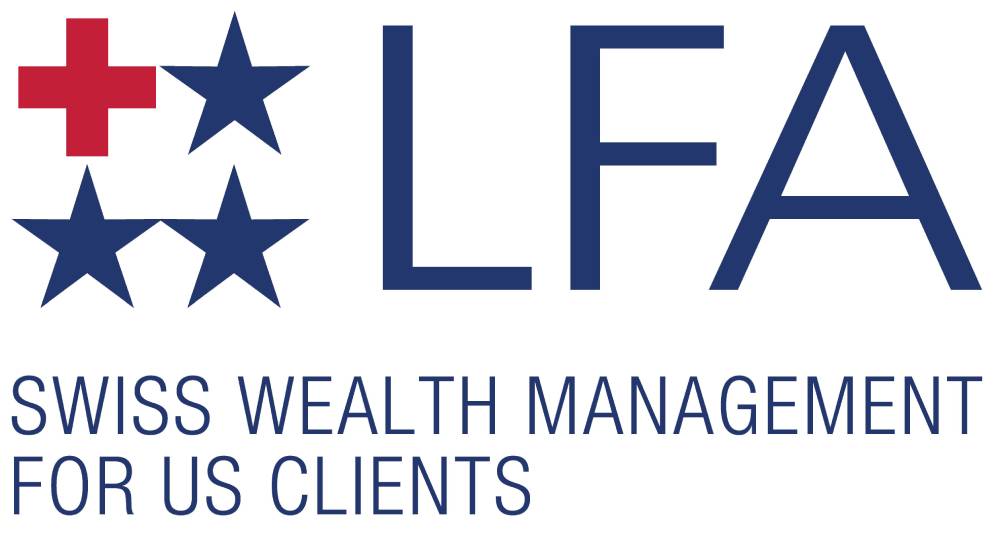Like the intricate workings of a Swiss watch, your investment plan should be just as precise. Are you ready to tap into the global market and invest with a sense of responsibility? Swiss wealth managers at LFA have a rich tradition of delivering personalized, long-term wealth management services to investors located in the United States.
As a firm located in Switzerland, we want to:
- Give your aspirations a secure home
- Advise you and your family through multi-generations
- Share a common successful future
- Keep and eye on you and your family through your financial journey
- Provide our expertise in financial analysis and our global macro view of investing to your international investment needs
The Benefits of Investing in Switzerland
The Swiss system, economy, and infrastructure make it a trustworthy investment destination. Switzerland’s low unemployment, low national debt, low currency fluctuation, and strong economy are all favorable factors for anyone looking into investing in a foreign country.
Switzerland has a robust international banking system, which takes away one of the significant concerns with foreign investments. You know your funds and assets are secured by some of the most qualified professionals when you invest with LFA.
We can help you gain international exposure and craft your multi-currency, multi-country, and multi-asset portfolio. We look at specific opportunities in terms of risk return and companies worldwide.
Swiss excellence goes beyond economic power, but it’s often the leading force in many industries, especially innovative industries.
Even amidst the pandemic, Switzerland successfully continued its development in many industries. In 2020, more than 46,000 startups were added to the Swiss Commercial Register, followed by an overall market size growth in 2021. Meanwhile, many Swiss companies remain global leaders in their segments.
How to Get Started with Swiss Investment
If you are ready to gain access to the global market, we are here to walk you through the process.
Begin with thoughtful planning to understand how the market works and what your investment options are. Next, understand your risk tolerance and determine your long term and short term goals. An international wealth manager can help map out your multi-generational investment approach.
Ask yourself these questions before drafting out a Swiss investment plan as you begin:
- How much do I want to invest overseas?
- How would that affect my current investment plans?
- How long do/can I hold the investment?
- What is my risk tolerance?
Building a Swiss Investment Portfolio

What are the best assets to add to your portfolio? Below are some investment suggestions (pros and cons included) to diversify your assets.
ETFs
Exchange-Traded Funds, or ETFs, is one of the most simple assets to invest in. It allows investors to purchase various assets in one security, providing a more efficient workflow.
The only thing to note is that some ETFs offer less diversification than other international ETFs. But you can easily avoid that issue by sticking to the most popular ETFs in the market, such as the iShares MSCI Switzerland Index Fund ETF (EWL).
Bonds
Government and corporate bonds are great additions to your investment portfolio. Bonds have lower volatility and therefore come with less risk. However, bonds usually have more extended holding periods. Return on bonds are also on the lower end in the current market.
Stocks
Buying foreign stocks allows investors to diversify their risk while exposing them to other economic growth. Most financial advisors recommend allocating 15% – 25% of your funds into foreign stocks. But again, this will be determined by your customized investment strategy based on your goals, risk tolerance, and time horizon.
Precious Metal (Gold & Silver)
Precious metals are generally considered safe investments since their value rarely changes. However, from an investment perspective, they do not provide any real returns compared to other assets.
Real Estate
Real estate is still one of the most popular investment assets. While the housing market faced some challenges due to the pandemic, investors are generally quite optimistic about this year’s real estate outlook.
However, real estate in Switzerland is quite expensive, and your investment can face some tax hassles. Also, investing in foreign real estate means you need to maintain the property since you are not living in Switzerland. Who will do that for you?
Bank Savings Account
Like precious metals, opening a Swiss bank account is more an asset allocation strategy than an investment strategy. Having a savings account in your portfolio adds stability since you’ll have easier access to the funds than longer-term investments.
However, given the current interest rate, you shouldn’t be expecting any real return from a savings account.
Learn how precise a Swiss-made investment plan is!
Know Your Risk Tolerance
To build a Swiss investment portfolio, you must know your risk tolerance and time horizon.
The easiest way to understand risk tolerance is by considering yourself in the worst-case scenario. For example, if your investment turns out to be a complete failure, how would that impact you and your family? What would happen to your legacy?
Typically, younger crowds with fewer responsibilities and more time to come around have higher risk tolerance. They have time on their side to make up for potential losses. Older generations nearing or in retirement with families and dependents have lower risk tolerance.
Other risk factors include:
- You and your family’s health condition
- Whether you anticipate large expenses in the near future
- Your funds available
- The amount of your emergency savings
- Your debt obligations
Long Term & Short Term Goals within a Swiss Investment Plan
Assess your goals with an international wealth manager.

Generally, short-term goals should focus on profitability, and long-term goals should balance profitability and longevity. Therefore, short-term goals are directly impacted by industry and
inflationary changes happening in the next few years, whereas long-term goals are more resilient to rapid fluctuations.
For example, if you plan on pulling out within a year or two, you should invest in the industrial sector, as it is making a comeback in 2022. In contrast, Swiss real estate and cryptocurrency are considered riskier and may face a bubble burst soon.
Meanwhile, if your Swiss investment plan is tailored for retirement planning, focus on low volatility assets like ETFs and bonds that will bring you steady, long-term returns.
Speak to a financial advisor specializing in global market planning. Your financial goals will be the compass navigating you through the process. Ask the right questions and customize a Swiss investment plan for you starting today.



